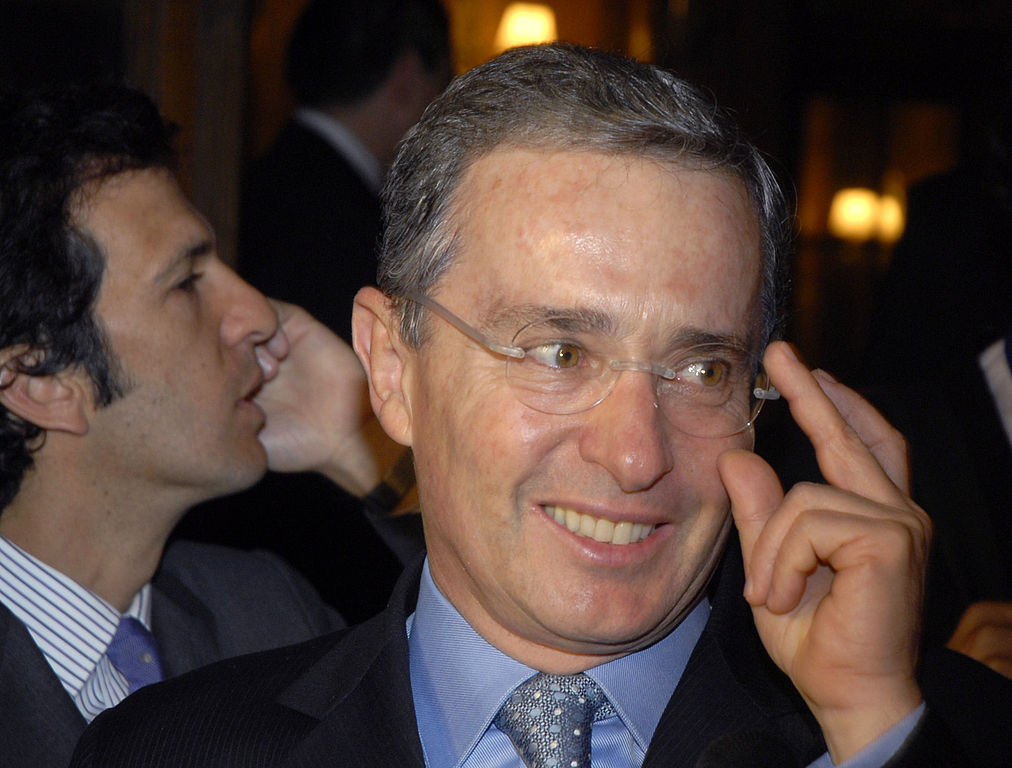In an unprecedented move, Colombia’s Supreme Court has put Álvaro Uribe Vélez under house arrest while it decides whether he should stand trial for bribery and witness tampering.

Senator and former president Álvaro Uribe Vélez will be confined to his home for up to a year, while the Supreme Court investigates charges of witness tampering and procedural fraud.
What actually happened?
Colombia’s Supreme Court has made history by putting former president and now senator Álvaro Uribe Vélez under house arrest. Uribe Vélez is accused of witness tampering and procedural fraud. Note that he hasn’t been found guilty of those crimes, only that the five judges have essentially decided that there is enough evidence to move forward with the case.
And in moving forward, they’ve ordered the house arrest as a medida de aseguramiento — or assurance measure. Given that he’s facing charges of interfering with justice, the idea is that he’ll be less able to do that if he can’t leave his house. It is the first time that this measure has been taken against an ex-president.
So Uribe Vélez’s under house arrest but he hasn’t been convicted?
Exactly. Uribe Vélez will be confined to his house, beginning immediately and it could last for up to one year. Various bits of evidence still remain to be processed before we even get to a trial.
What is Álvaro Uribe Vélez accused of?
This is a bit of a tangled web, so bear with us. Back in 2012 and again in 2014, Polo Democrático senator Iván Cepeda clashed with Uribe Vélez, accusing both him and his brother of founding a block of the AUC paramilitary group, allegations that stretch back years.. He presented testimonies from ex-AUC combatants.
Cepeda was then himself accused of witness tampering. But the tables were again turned in 2018, when the Supreme Court ruled that Uribe should be investigated.
A lot centres around the former paramilitary Juan Guillermo Monsalve, and even more centres around the actions of Uribe Vélez’s lawyer, Diego Cadena. Cadena has already been charged with trying to interfere with Monsalve’s testimony as well as other testimonies. Both he and Uribe Vélez say he did so of his own accord. To understand more, check out La Silla Vacia’s rundown of what happened and who’s who.
Note that the Supreme Court is not investigating whether Uribe Vélez was connected to the paramilitary group, it’s investigating whether he tried to interfere with witnesses who might have said he was.
What happens next?
Uribe Vélez continues to deny the allegations against him. He is likely to decamp to his home in Medellín, as he can choose which house he wishes to be arrested in.
In terms of the case, this is really just the beginning. The Supreme Court now needs to investigate further and make a final decision on whether to take Uribe Vélez to trial.





